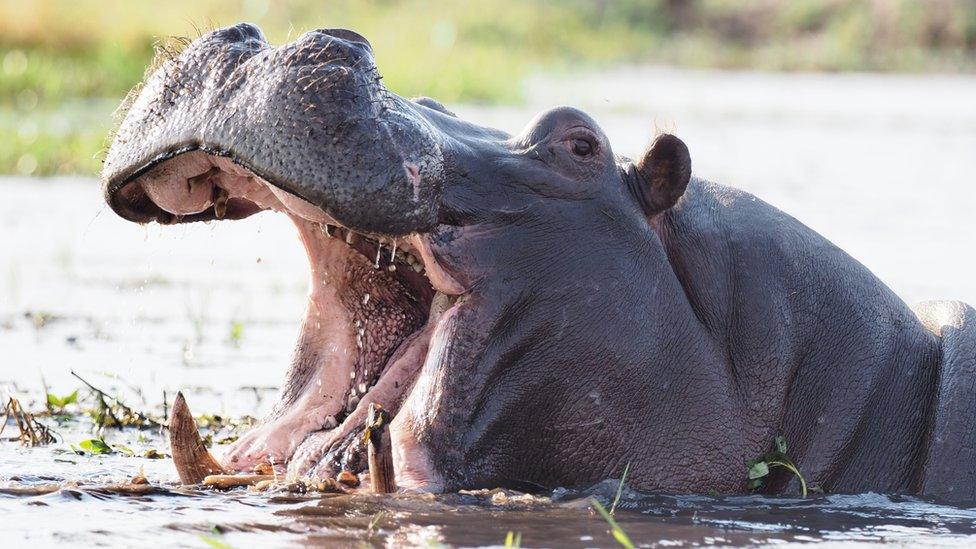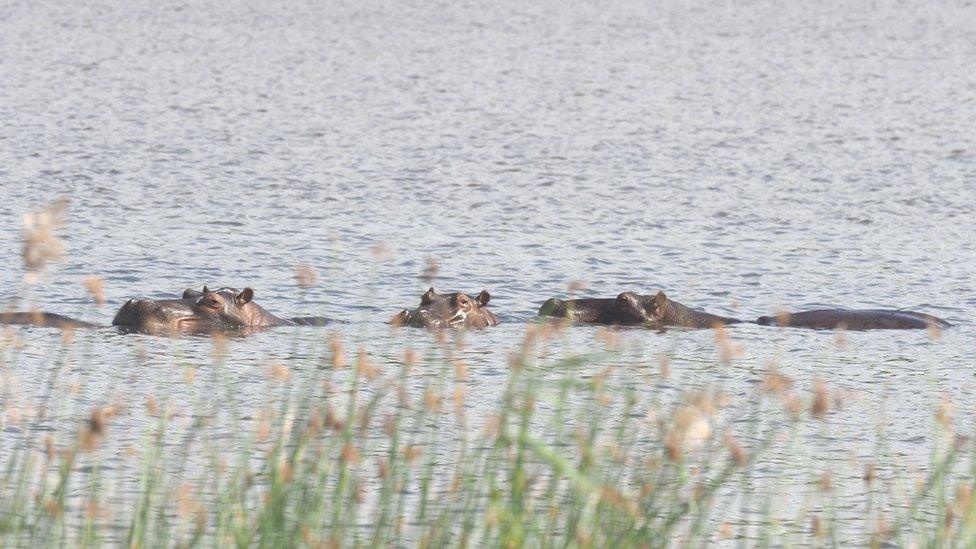Hippos can recognise their friends' voices
- Published

Scientists studied groups of hippos living in a nature reserve in Mozambique
Wild hippos are noisy creatures, their calls travelling long distances across lakes and rivers.
But until now the precise function of the loud "wheeze honks" the animals make has been a mystery.
Scientists studying hippos at a nature reserve in Africa say the distinctive honks enable the large mammals to tell friend from foe.
And the team says the animals can probably recognise individuals from their "voices".
Study leader, Prof Nicolas Mathevon, from the University of Saint-Etienne, in France, has studied the sounds animals make across the world, from leopard seals to hyenas.
He said hippos have a wide vocal repertoire, including grunts, bellows, squeals and "wheeze honks", but very little is known about their social communication.
"In their call, there is information about the identity of the individual - so they have 'voices' - and they are able to recognise each other by their voices," he said. "This recognition ability supports the social relationships between individuals."

The area has a number of lakes with different hippo populations
To find out more about hippo communication, French researchers recorded the sounds of hippos living in the Maputo Special Reserve in Mozambique.
The wheeze-honk is the most common hippo call and the loudest- travelling as far as 1km, according to the study.
The biologists recorded the wheeze-honks of hippos and broadcast these from the shore of lakes to see how other individuals responded.
They found hippos could tell apart friends, neighbours and strangers from their voices. In addition to telling apart friend from foe (or, at least, unfamiliar hippos), the animals can probably distinguish between individuals, according to the researchers - though they can't be absolutely certain of this.
And despite appearing to be lounging around on the water, the large mammals were clearly paying close attention to their surroundings and responded immediately to the broadcasts.
The animals responded more aggressively to unknown hippos - with quicker, louder and more frequent calls, often accompanied by territorial displays of dung spraying.
Prof Mathevon said it was important to learn more about the biology and behaviour of hippos to help avoid human-animal conflicts.
The knowledge might also assist with conservation, he said, as wild hippos are sometimes moved from one location to another to keep local populations healthy.
The work may inspire conservationists to make recordings to allow local hippos to get used to the voice of the new ones before they arrive, he added.
Hippos are not yet endangered in the wild, but their numbers are plummeting fast. They are a source of animal-human conflict, with hippos causing hundreds of human deaths a year.
The research is published in Current Biology.
Follow Helen on Twitter, external